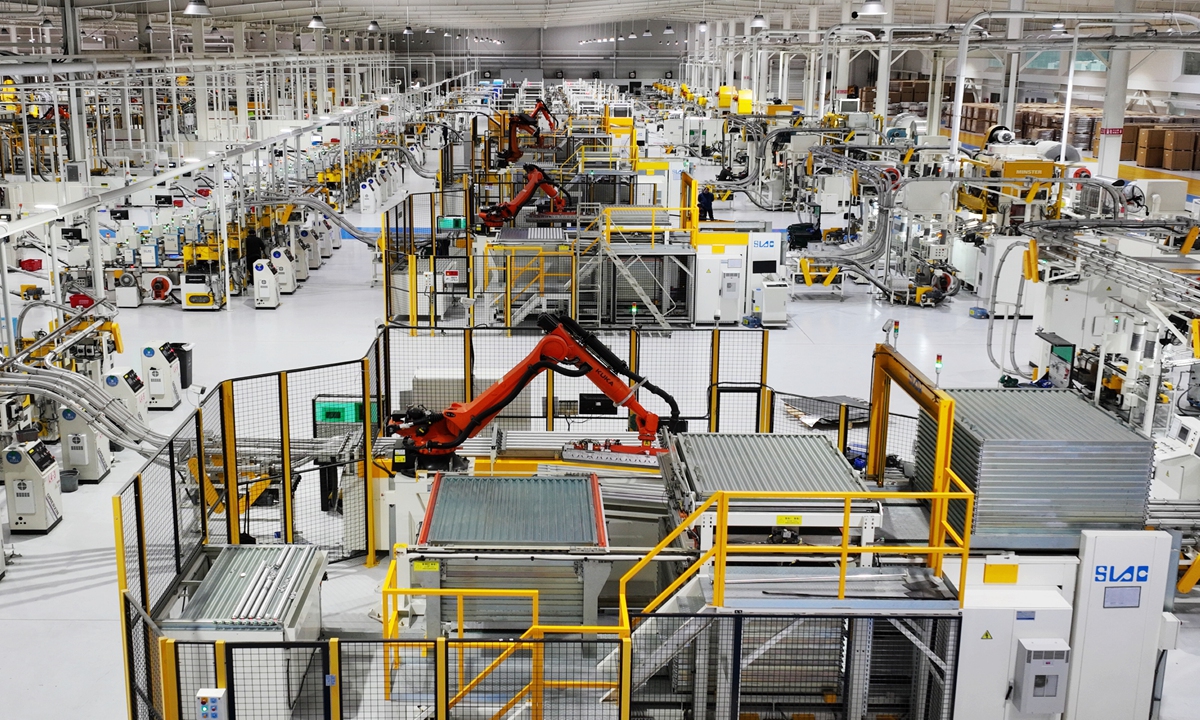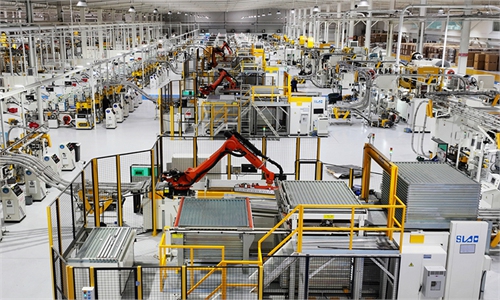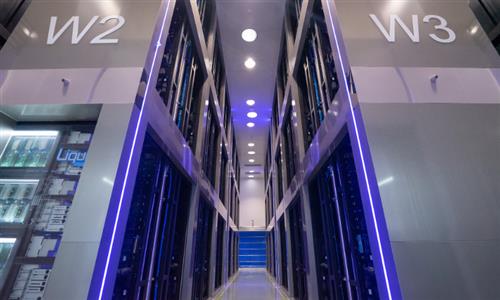
Industrial robots are operating on an intelligent production line in a smart manufacturing enterprise in Yangzhou, East China's Jiangsu Province. Photo: VCG
Chinese companies are working to integrate artificial intelligence (AI) technology with manufacturing, in a bid to further develop China's smart manufacturing amid an accelerating scientific and technological revolution and a new wave of industrial transformation.
Guangzhou Automobile Group Co (GAC) recently signed a deal with Shenzhen Tencent Computer System Co on upgraded strategic cooperation in Shenzhen, South China's Guangdong Province.
According to the agreement, the two ventures will combine the advantages of GAC Cloud and Tencent Cloud to discuss jointly building the next generation of hybrid cloud infrastructure to support GAC Group's cloud collaborative innovation in multiple fields such as intelligent driving, intelligent cockpits, enterprise digital intelligence, and overseas expansion.
GAC Group and Tencent established a strategic relationship for the first time in 2017, and have since laid a good foundation for mutual trust and win-win results during recent years.
In addressing the automotive industry, Tencent said it has partnered with more than 100 car companies, providing solutions with industry ecological partners, including content ecology, cultural and technological resources.
An accelerating scientific and technological revolution and industrial transformation is driving the development of 5G, cloud computing, digital twins and AI, reshaping traditional production and new manufacturing.
Xin Guobin, vice minister of industry and information technology said in January that the ministry has supported the selection of 421 national demonstration factories and promoted the construction of over 10,000 local digital workshops and smart factories following a multi-year effort.
Chinese experts and market insiders said that digitization and intelligence are driving the innovation, transformation and upgrading of all major industries, which both traditional industries and emerging industries have the opportunity to significantly improve production efficiency through deploying innovative technologies.
The innovation-driven new quality productivity forces is accelerating digitalization and a green transformation across the Chinese economy. Schneider Electric is also currently exploring the application of AI technology in various industries and scenarios, helping to speed up the transformation.
The enterprise itself has a very strong experience for digital transformation and hopes to build its own new competitiveness and influence in the industry through its use of digital transformation, according to Laura Ding, senior vice president of Industrial Automation Business in Schneider Electric China, in this enterprise's 2024 Innovation Summit held in Qingdao, East China's Shandong Province.
According to Ding, the company is strengthening its R&D power in AI area, such as currently there are over 250 AI engineers in 4 AI Hub around the world, and an AI innovation laboratory was established in Yizhuang of Beijing.
With the help of AI, we are working with companies on energy optimization and machine identification technology to assist with fault diagnosis, Ding said.
Today's pharmaceutical companies have very strict requirements for digitalization, including the control of the entire factory, intelligent transformation, and production process control, said Li Chong, general manager of Beijing Double-crane Pharmaceutical Equipment Co who attended the summit's panel discussion regarding AI application in various industries.
"With digital solutions' help, especially the application of AI, our equipment serves as the intelligent terminal and smart unit of the entire factory control system, in line with the whole factory system to satisfy the customers' needs both in digitization transformation and upstream-downstream collaboration," Li said.
The new quality productivity forces will provide new momentum to Chinese industries' transformation toward digitization and decarbonization. In such backdrop, the company is committed to helping Chinese enterprises light up the engines of "technological innovation" and "ecosystem innovation" to take advantage of the trend and win future opportunities, accoridng to Yin Zheng, executive vice president of China & East Asia Operations with Schneider Electric.
Global Times



